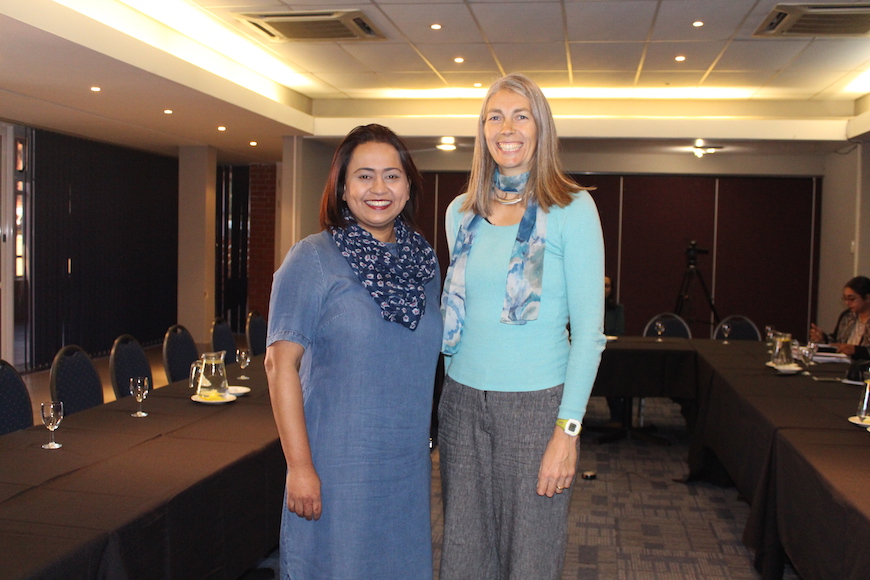Hosting research capacity development workshops forms part of the undergraduate teaching-research nexus project at the Durban University of Technology (DUT).
The Research and Postgraduate Support Directorate (RPS) hosted a workshop with international speaker Professor Helen Walkington, at the Hotel School Conference Centre, Ritson Campus, on Monday( 22 July 2019).
Prof Walkington focused on her international research on ten salient practices for becoming an effective mentor.
Prior to this workshop, a previous workshop was held on research enhanced learning, with the aim of understanding how and why to link research and teaching as well as the ways in which students can benefit from engaging in research dissemination activities linked to the curriculum.
DUT’s Dental Technology senior lecturer and a NRF Y2-rated researcher, Dr Anisa Vahed, has played an integral role in the two workshops, as her vision for the next six years is to establish improved practices in strengthening the link between undergraduate teaching and research aimed at cultivating valued graduate attributes.
To this end, she has teamed with Prof Walkington from the Oxford Brookes University, UK, who is renowned for her work on the research-teaching nexus; and having conducted a comprehensive review on mentorship practices over the past 20 years.
“Mentorship is defining, essential feature of underground research. The benefits students gain from participating in research, depend on the quality of the mentoring they receive,” she said.
Prof Walkington also added that there were three forms of support which were deemed fundamental mechanisms of undergraduate research mentoring.
She said it was vital to give intellectual support i.e. helping with the problem-solving or identifying the next steps of the research, giving emotional support as well as transmitting the values and norms of the profession, along with essential disciplinary knowledge and skills.
Prof Walkington reiterated that mentoring beyond one’s expertise is always good, especially in terms of engaging outside the context of what mentors are familiar with. “When it comes to mentoring, it is all about coming together and also involving a co-mentor when there are statistics involved,” she added.
She also spoke on the significance of high impact practices with some of the key elements being significant investment of time, interactions with faculty and peers, as well as experiences with diversity.
Various DUT mentors at the workshop also gave their input on mentoring issues pertaining to having very diverse groups from various, ethnic backgrounds, which had impacted on their mentoring skills.
Prof Walkington stressed that the world can learn from South Africa which has a diversity of groups. “I think embracing research and using it as a model theory would help the world,” she said.
She concluded by showcasing some research on award-winning mentors who possessed consistent set of value characteristics despite differing disciplines, institute or country. She said that these mentors looked at the whole student and took students to the edge in a professional and developmental capacity, as well as were able to create an identity change from student to researcher.
Prof Walkington further added that in terms of future mentoring practices, mentors should look at ‘skyping with students’ as a way forward.
Biography
Prof Walkington has established a University-wide student experience project called Get Published! allowing undergraduate students to share their research work publicly. She has established numerous undergraduate research conferences and journals and has been a steering group member of the British Conference of Undergraduate Research (BCUR) since its inception in 2010.
In addition to her discipline research, Prof Walkington has written papers, chapters, books and guides relating to teaching and learning in education. In 2018 she was awarded the RGS Taylor and Francis award for sustained contribution to Teaching and Learning in Higher Education.
Pictured: Dr Anisa Vahed and Professor Helen Walkington, at the workshop.
Waheeda Peters


